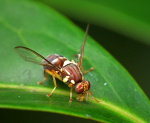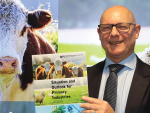Horticulture New Zealand (HortNZ) says fruit and vegetable growers who supply the domestic market have welcomed the Commerce Commission’s recommendations following its investigation into supermarkets.
“The industry is pleased to see the Commerce Commission is recommending actions that would improve the relationship between growers and grocery retailers,” says HortNZ chief executive Nadine Tunley.
“These actions include a compulsory supplier code of conduct, the prohibition of unfair contracts and a disputes resolution scheme. If implemented, these recommendations would help reverse the imbalance of power that the commission identified in its investigation.”
Tunley says the improved relationship, accompanied by greater transparency, should ensure growers get a better return on their investment, ensuring they continue to invest in fruit and vegetable growing.
“The greater transparency should also enable consumers to understand better the price they pay for New Zealand-grown fruit and vegetables,” she says.
Tunley says grower returns have not increased for at least a decade.
“However, retail prices and costs - labour, freight and compliance - have steadily increased [see Farm share of retail prices, NZIER report, August 2019]. In addition, Covid has brought about further, more recent, steep cost increases.
“New Zealanders have a stark choice. If we want to eat fresh, healthy New Zealand-grown vegetables, we must be prepared to support the New Zealand growers who grow them. Otherwise, New Zealand will have to start importing more frozen and canned vegetables.”
She says seasonality and the weather play a In the winter, prices are higher because it is far more difficult and expensive to grow produce.
“Right now, some vegetable prices are higher because there’s a shortage, partly due to wet weather in December and again in February preventing growers from planting for up to three weeks. Right now, growers are struggling to plant, pick and pack due to the labour shortages that Omicron is creating significant role in the prices of fruit and vegetables.”


















